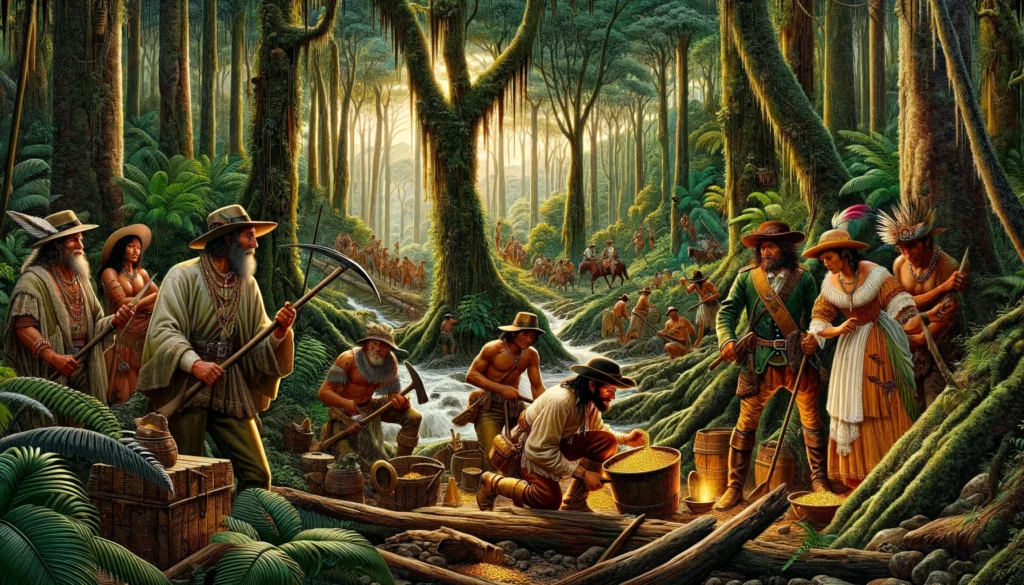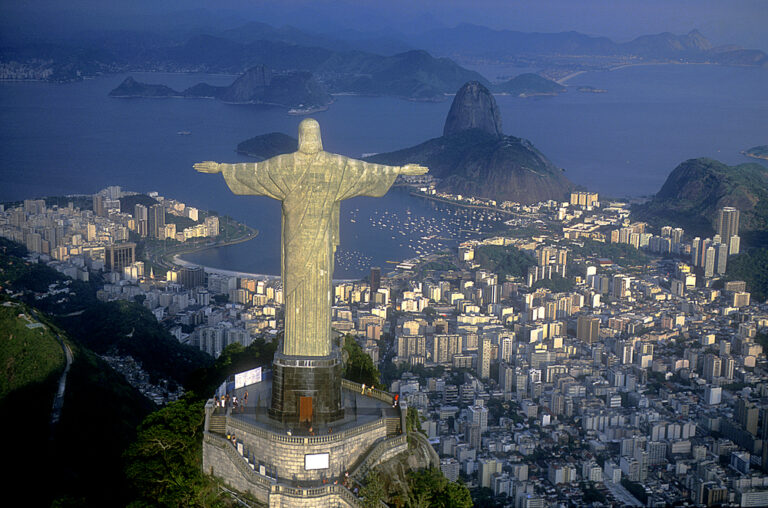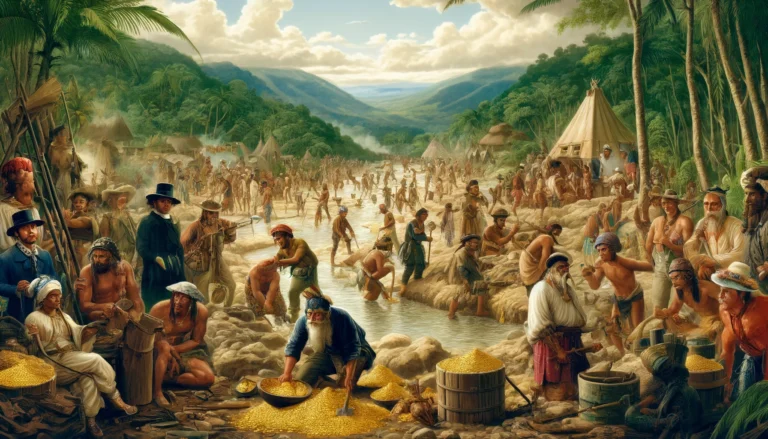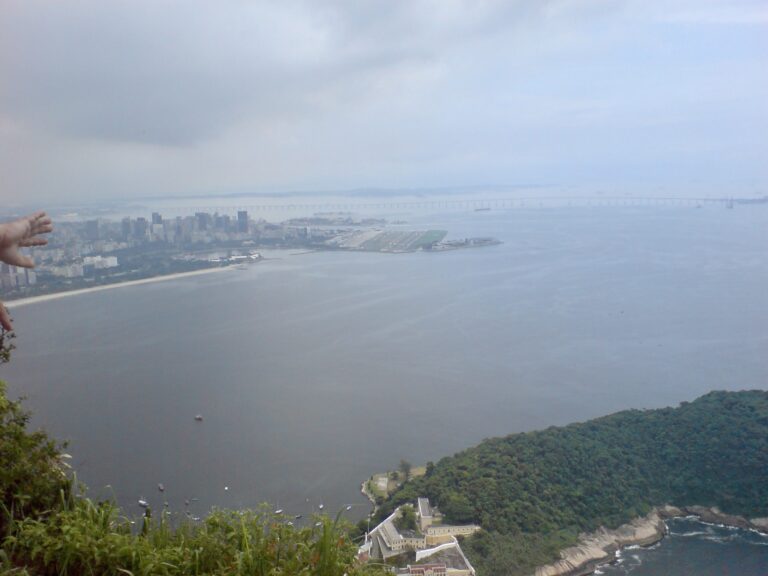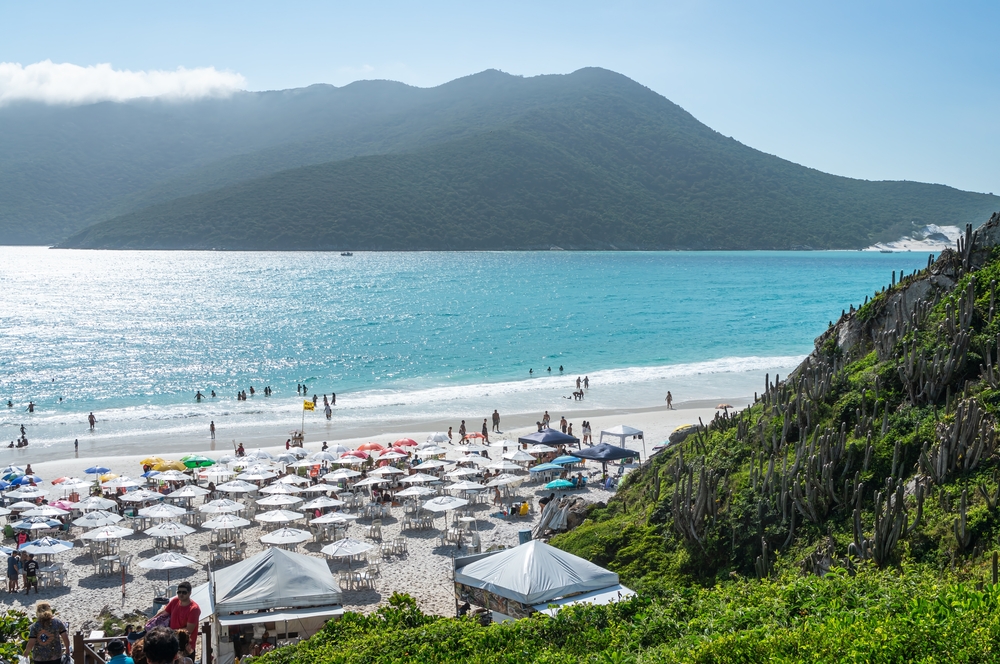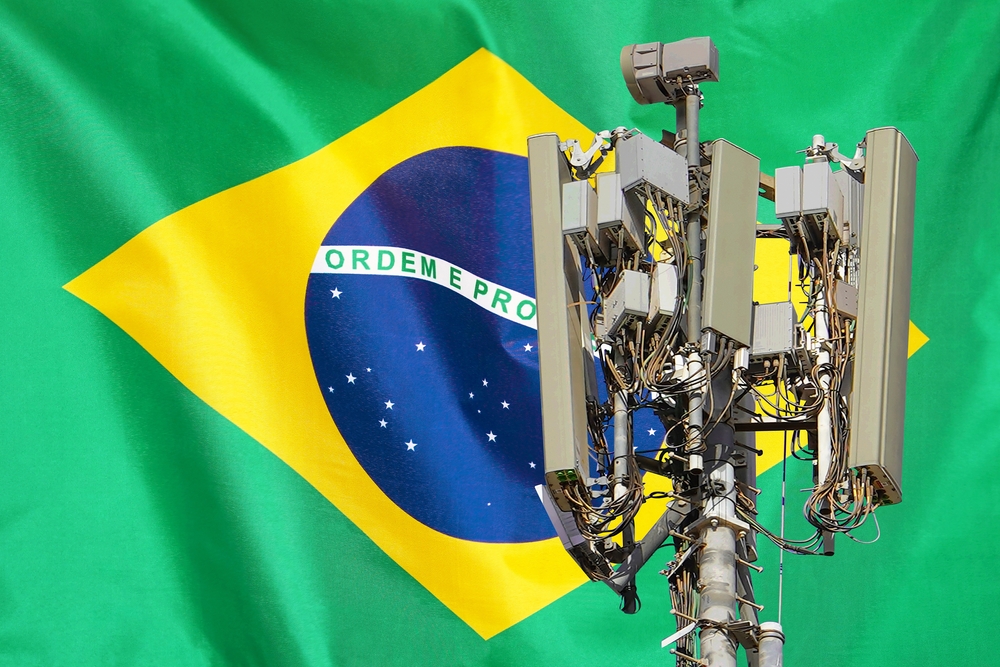The search for gold in Brazil, specifically beginning around the year 1559, is an intriguing chapter in the broader history of colonial expansion and exploitation in the Americas. This quest for gold significantly shaped Brazil’s economic and social development and had far-reaching effects on its indigenous populations and European colonizers.
During the mid-16th century, the Portuguese crown, which controlled Brazil, was keenly aware of the fabulous riches being extracted by the Spanish in parts of what are now Peru and Mexico. In response, the Portuguese intensified their efforts to explore and exploit their own colonial territories, hoping to find similar wealth. This marked the beginning of what would be known as the Brazilian Gold Rush, although significant gold deposits weren’t discovered until the late 17th century.
By the 1690s, after several smaller finds and increasing rumors of gold in the region, large deposits were discovered in the area that is now the state of Minas Gerais. This discovery triggered a rush that saw tens of thousands of people—Europeans, enslaved Africans, and even local indigenous people—flock to the region. The gold rush led to the rapid development of this region, including the establishment of towns and the expansion of colonial administrative and fiscal institutions.
The influx of settlers and the establishment of mining operations had profound impacts on the indigenous populations. Many were enslaved, displaced, or killed by diseases brought by Europeans. Moreover, the environment was significantly altered by mining activities, which involved diverting rivers and deforesting large areas.
Economically, the gold mined during this period helped sustain the Portuguese Empire and financed its involvement in European conflicts. However, by the 18th century, the gold reserves began to dwindle, leading to a shift in the colony’s economic base from gold to agriculture, particularly coffee and sugar.
The legacy of the gold rush era in Brazil is complex, contributing both to the development of the nation and to patterns of inequality and environmental degradation that are still visible today. The pursuit of gold not only reshaped Brazil’s economic landscape but also had lasting impacts on its social fabric and ecological systems.

